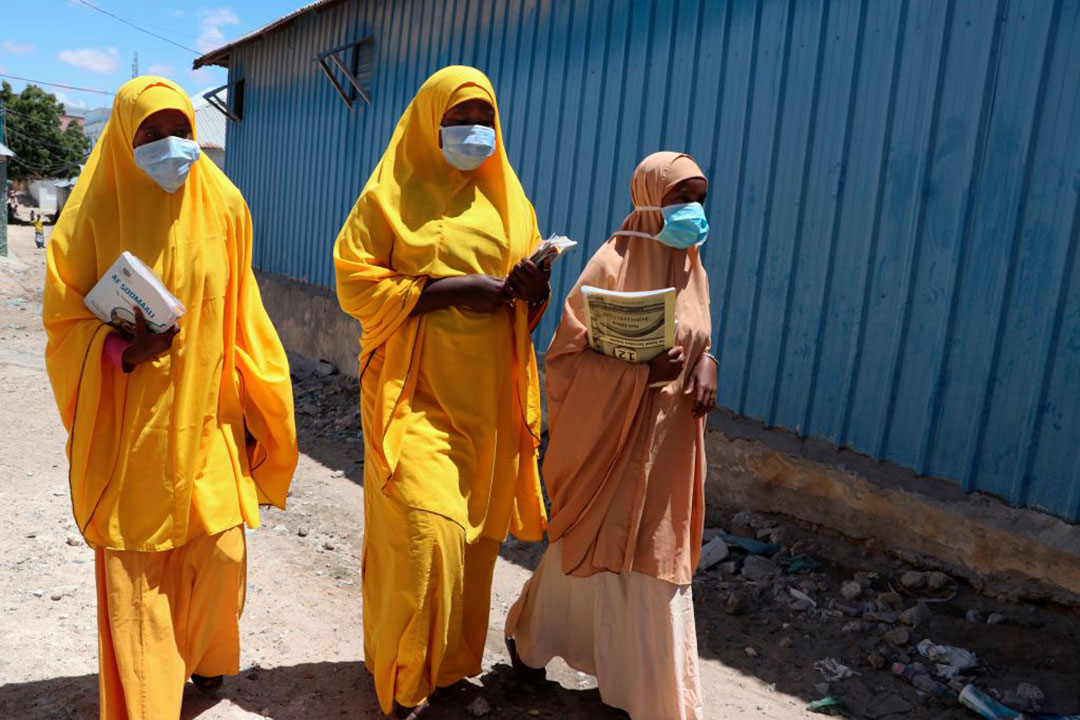ADF STAFF
The death of a Belgian woman earlier this year has raised concerns among medical experts that unvaccinated people can contract different variants of COVID-19 at the same time, complicating treatment.
The woman, who died of COVID-19 in March, had contracted the alpha and beta variants at the same time. Both variants are circulating widely in Africa.
The prospect of double-variant infections adds more urgency to international efforts to control the spread of COVID-19 in Africa at a time when just over 1% of the continent’s 1.3 billion people are fully vaccinated against the disease.
“Certainly, if it happens in one country where multiple variants are circulating, so also is the possibility of the occurrence of such infections in other countries where multiple variants are circulating,” Nigerian virologist Oyewale Tomori told ADF.
As of late July, 38 African countries have reported the alpha variant, 32 have reported the beta variant and 21 have reported the delta variant. Another variant, lambda, has been confirmed in one African country, Egypt and at least 30 countries globally. Many countries have two or three variants in circulation. Ghana, Kenya, Rwanda, South Africa and Uganda have reported three variants, according to the Africa Centres for Disease Control and Prevention.
The delta variant has spread rapidly across Africa, driving a third wave of infections in 29 countries. The continent’s caseload and death count have accelerated, and hospitals are strained to the breaking point.
In a handful of African countries, the case-fatality rate has reached 5%, double the rate for the continent as a whole.
Africa’s rising infections are due in part to the highly infectious nature of delta, which is more virulent than the original COVID-19 strain. Infections also are being driven by so-called pandemic fatigue, which has caused people to abandon nonpharmaceutical interventions (NPIs) such as masks, hand-washing and social distancing to stop the spread of the virus.
“It is the double jeopardy of lack of vaccine and disdain of NPIs,” Tomori said. “Therefore, there is a heightened risk of transmission of single and double variants.”
Variants arise as the coronavirus spreads from person to person. Each transmission creates an opportunity for a new, more infectious variant.
The African Vaccine Acquisition Trust and UNICEF have begun distributing the first round of African-made, single-shot Johnson & Johnson vaccines produced by Aspen Pharmacare in South Africa.
Zimbabwean businessman Strive Masiyiwa, the trust’s coordinator, said the plan is to release 10 million doses a month through the end of the year, then ramp up that number in early 2022. Ultimately, Aspen Pharmacare will produce 400 million doses for Africa.
Even as the vaccine supply grows, masks and other interventions will remain crucial to keeping people safe and preventing future variants, Tomori said.
“Masks and other nonpharmaceutical interventions will certainly contribute significantly to reducing transmission of virus variants from one person to another,” Tomori said.


Comments are closed.